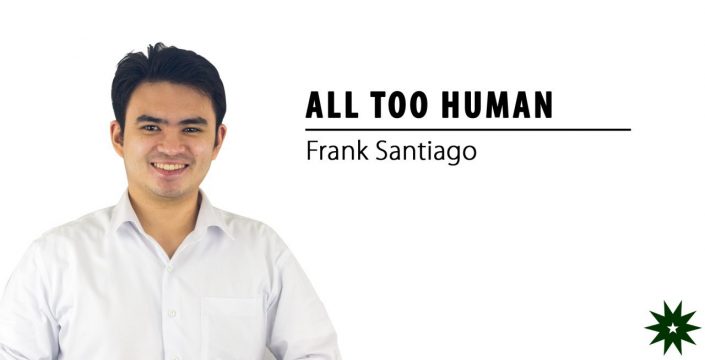Last month, I received the results of my annual physical exam, a yearly checkup that I do for both school and work. The results were mostly consistent with previous years in that there were no significant findings to report. There was, however, one part that caught my eye: I had a low level of HDL—what we know as “good” cholesterol—which has been linked to a higher risk of developing atherosclerosis, or clogged arteries. I was told I needed to cut down on fatty foods—goodbye, samgyup—and engage in more physical activity. That was the first time I received that type of medical finding, and I was honestly alarmed.
While it seems the results are more of a problem with my eating habits, I can’t help but think that I developed those habits because of my overall lifestyle, which has been, for the past few years, cramped with endless work.
It’s no secret that I’m a workaholic. Psychologist Wayne Oates, who coined the term “workaholic”, described the condition as having an uncontrollable compulsion to be working or to do anything related to work. I previously thought that workaholism and working a lot were synonymous, but they are in fact two distinct concepts. The difference between the two lies in one’s ability to “switch off” from work. Someone working long hours can switch off from work at the end of the day. A workaholic, on the other hand, would still obsess about work even during their free time. I belong to the latter group.
I have to admit that my being a workaholic is also in part because of the nature of my job. Running a school publication is round-the-clock work—you never know when something newsworthy will suddenly happen. When I’m off on a coffee break or a lunch break in my full-time job, I’m never really on a break. I would be on my phone, waiting for updates, answering emails, or editing outputs for the publication. At some point, I would even forget that I was in the middle of eating.
After my 9-to-5 ends, I also have more time to not take a break but work on my other deliverables until I finally go to bed late in the evening. Rinse and repeat.
It seems ridiculous to think that overworking is appealing, yet I know some who take pride in it, both at work and in school. At work, these are the bibo employees who try their best to impress their boss and work overtime to complete deliverables early. In school, these are the “BS org” kids we often hear about, jumping from one project or assignment to another. This constant working—”hustle culture” as some people have called it—is arguably a recent trend that can be traced back to the revolutionary setups created by Silicon Valley companies like Google. Now, most companies have adopted this trend, blurring the line between the personal and the professional.
I used to take pride in it—juggling work, academics, and journalism sounds insane, because it is. While there is nothing wrong with being dedicated to a job you love, it’s important to remember that the stress it gives has health implications, as perhaps evidenced by my physical exam results.
According to an article published in the Harvard Business Review, studies have shown that workaholism increases one’s risk of developing cardiovascular diseases and diabetes, while also reportedly causing emotional exhaustion, sleep problems, and generally depressive feelings. In comparison, people who spend long hours at work yet know how to detach from their job when they clock out are at relatively lower risk.
The private sector and the government have both, at least, tried to address the problem of overworking in different ways. Republic Act 11165, or the Telecommuting Act, was signed into law earlier last year, allowing employees to have a flexible work arrangement with their employers. This, in theory, would enable one to work from home or from an alternate workplace, while still being offered the same benefits as employees working on-site.
Last month, the Department of Labor and Employment released an order that required companies to formulate a mental health policy, acknowledging the importance of taking care of employees’ psychological well-being by addressing work-related stress and mitigating burnout. In our own workplace, we are offered a wide range of wellness options, seminars, and leave packages.
While these do help in reducing stress, it won’t be effective if the individuals themselves do not acknowledge that they are workaholics and that they need to detach from work. Sometimes, it’s as simple as putting down the phone and finding something else to do to occupy your free time—without feeling anxious about not doing anything productive. For others, it also involves redefining your work schedule. Whatever it may be, it all boils down to setting aside time, at least every now and then, where you can be fully disengaged from work.
Take a break. You’re going to need it.

